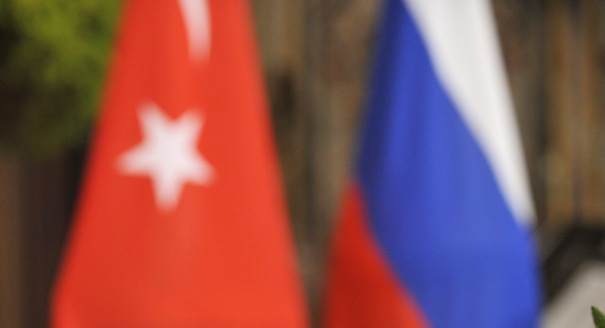Relations between Moscow and Ankara have always been a cocktail of dozens of wars, backstage intrigues, and a struggle for zones of influence. It was inevitable considering the two share a large geographic and cultural neighborhood from Europe and the Caucasus to Central Asia and the Middle East. But Russia and Turkey shared more than that; both pursued the ambition of becoming a leading Eurasian power.
Today, the overall context of the relationship is believed to be less adversarial. In recent years both nations have suffered disillusions—albeit stemming from different motives—over their European partners. However, the nature of their bilateral relationship in other strategic regions has proved to be more nuanced.
In the Middle East, Russia and Turkey have subscribed to divergent narratives of the Arab Spring, the war in Syria, and the struggle against ISIS. Moscow may not fully recognize the reasons shaping Turkish attitudes towards these matters but remains concerned that these divisions will move Ankara to “explore” the North Caucasus more vehemently.
Turkey possesses real leverage to be either a spoiler or a partner in assuring the security of Russia’s most volatile region. According to the Southern Scientific Center of the Russian Academy of Sciences there are currently 19 Turkey-based organizations engaged in various activities in the North Caucasus. Most of them started their operations during the First Chechen War and are still believed to support the dissemination of extremist ideologies. However, this challenge also represents an opportunity for cooperation: if Ankara and Moscow are serious about counter-terrorism, tackling the practices of these groups might be a good starting point to reset bilateral relations.
This issue falls within the larger theme of the Turkish ideological quest. For the newly-born elites of the Arab Spring, Turkey represented a model of a secular Muslim state. Lately, however, Turkish policies in the Middle East have come under heavy fire from all sides: domestically from the Kurds as well as the political opponents of the ruling government, regionally from Shia Muslims, and internationally from the Obama administration and some NATO allies. Ankara has even encountered some tacit resistance from the troika of the Gulf monarchies—Saudi Arabia, Kuwait, and the United Arab Emirates—who do not want to empower Turkey to the position of the leader of the Sunni world.
This criticism certainly does not mean that Ankara will give up on its strategy in the Middle East. But it is logical to assume that in times when its policy there does not run smoothly, playing the Pan-Turkic card to score points in regions where its political profile is higher may be an option to consider.
Indeed, culturally and ethnically Turkey identifies with a large chunk of the former Soviet Union, namely Central Asia and the Caucasus. Pan-Turkic ideas to engage “nations speaking one language, practicing the same religion and cherishing the same values to elaborate a common policy” have already echoed in the South Caucasus, particularly in Azerbaijan and Georgian Autonomous Republic of Adjara. Across the mountains, numerous Turkish foundations invest wads of cash into decorating mosques in Karachay-Circassia and promote educational and cultural projects for Turkic-speaking ethnic groups of the North Caucasus. This type of foreign activity may not be new, but it certainly does not make Russians feel comfortable. In fact, it is often perceived as a poke in the eye.
In subtle issues like these it is important for Moscow and Ankara to separate cooperative wheat from antagonizing chaff. In this complex relationship pretty much everything is permissible but not everything is beneficial.
Maxim A. Suchkov, PhD, a former Fulbright visiting fellow at Georgetown University (2010–11), is currently a contributor to Al Monitor (Russia Pulse) and fellow at the Institute for Strategic Studies (Pyatigorsk).
